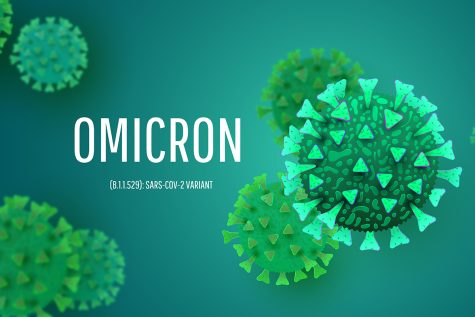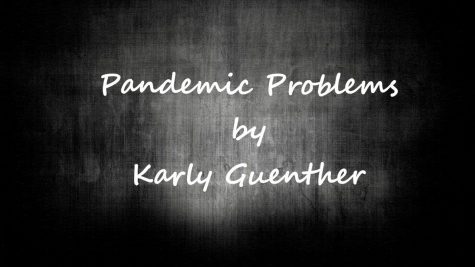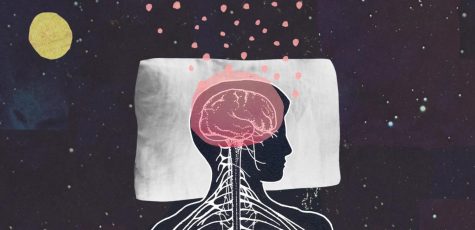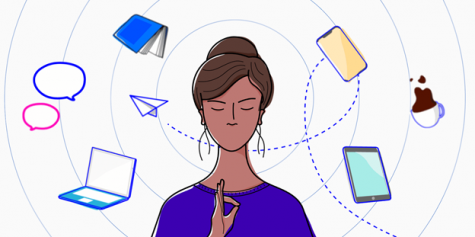The Importance of Getting Your COVID-19 Vaccination
April 8, 2021
COVID-19 has upset the lives of many people. As we are all aware, there are now vaccines to fight against the COVID-19 virus. Getting vaccinated is urgent and extremely crucial to our well-being.
Getting vaccinated will help reduce the number of COVID-19 cases and with decreased transmission in our community, we can get back to normal sooner rather than later.
It is understandable that many of us are apprehensive when it comes to getting vaccinated against a new virus that we may not fully understand especially when we also don’t understand how the vaccine works. But once the vaccine is available for you, it is essential that you get vaccinated to give you, and those around you, protection.
Wearing masks and social distancing will help reduce the spread, but it will not be enough to bring the spread to a screeching halt.
Vaccines work precisely with your immune system and are an effective tool to stop a pandemic when herd immunity is reached. Vaccines in the past eradicated diseases such as chickenpox, polio and tetanus, diseases that regularly claimed the lives of many only generations ago.
Herd immunity occurs when most of the population gets vaccinated or has experienced the virus. Herd immunity is important because it will protect those who are vulnerable and unable to take the vaccine and will also lead to a safer environment to facilitate gatherings.
It is necessary to address misinformation so we may transmit accurate information and data to those who are questioning the vaccine.
Scott Svedin, a sophomore at Sultana High, coherently expresses that ¨the internet is often times not a reliable source, unless you look in the right place.¨ While it is vital to share factual information, it is also dangerous to distribute inaccurate details. Inaccuracy about this vaccine has led to confusion among people.
Arlene Martinez, a sophomore at Sultana High, also states ¨the only information that I hear and believe, are those that come from well trained doctors, scientists, and those who work on making vaccines. They know what they are talking about, they went to school, these are some reasons why I only trust what comes out of their mouth. Many negative rumors come from Facebook blogs that have no credentials in any sort of medical field. There is a pattern, many of those who do not want to take the vaccine, usually get their information from those kind sources (those that have no medical credentials).¨
Not knowing much about a new vaccine can cause trepidation, and that is completely normal for one to experience. We have to keep in mind that any vaccine before it is authorized goes through many clinical trials to ensure that it is safe for the public to obtain.
Millions of vaccines were first given to doctors; which should provide certainty that the vaccines are safe for the public. There would be absolutely no motive in harming the essential workers that aid our public in this health crisis.
Healthcare workers have priority access to the vaccine, but some opposed the idea of getting it. According to a Morning Consult survey, in the first weeks of January, 23% of healthcare workers said they would not get the vaccine. Skepticism appears to live among everyone including those in the medical field.
Christina Allen, a nurse practitioner shares, “Because this is a new and novel virus, there’s so much we still don’t know, and so I think that that also created a slight hesitancy for me.”
Furthermore, Allen´s distrust on the relatively new vaccine, caused her to become hesitant regarding the vaccine in question. Allen speaks on the fact that even though she was skeptical, she would eventually get vaccinated and so she did.
¨And I feel like I did the right thing ― it wasn’t an easy decision ― because I feel like I’ve given myself and others that much more protection” Allen ultimately stated.
As of April 8th 2021, the United States has a 19.6% of population that are fully vaccinated.
Center for Disease Control and Prevention posits: ¨None of the COVID-19 vaccines contain the live virus that causes COVID-19 so a COVID-19 vaccine cannot make you sick with COVID-19.¨CDC plainly articulates that the vaccines approved in the US cannot get you sick; therefore, that is a matter that you do not have to worry about due to CDC´s professional reliability and credentials.
Even after you are vaccinated, you may still get COVID. As a matter of fact, it is more likely for one to get COVID if not enough people get vaccinated and COVID continues to circulate and mutate into new strains; however, being vaccinated will keep you from getting severely sick and potentially dying from the infectious virus.
Experts continue to state that getting vaccinated will help you reduce the chance of getting severe illness from COVID. The vaccines that have been approved by the Food and Drug Administration (FDA), have been proven ¨to be highly effective at preventing COVID-19¨ (cdc.gov). A COVID vaccine will reduce risks of getting the virus, but like any other vaccine, it does not guarantee 100% protection.
The following approved vaccines effectiveness in the US are:
Pfizer : 95%
Moderna: 94.1%
Johnson & Johnson´s/Janssen: 66.3%
A rumor that has been shared internationally through a Facebook video claims that the COVID-19 vaccines contain microchips. No, chips cannot be injected because they are too large to be injected through a needle.
Those who are concerned about this conspiracy are also worried that someone will track their personal information. One must know that as long as you carry a cellphone, you can be tracked from your mobile phone; therefore, if being tracked is a concern, then consider getting rid of your phone.
A sophomore at Sultana High, Joshua Alvarado, explains that ¨it’s pretty insane saying the vaccine has a chip in it. Those rumors seem very far stretch, especially if I think the government already has everything they want to know about us.¨ We can all find out what is included in the COVID vaccines by visiting the CDC website and exploring through the vaccines ingredients.
A freshman at Sultana High stated: ¨I would not want to get it because the latest news on the vaccine makes young girls and boys infertile and one day in the future I will want to have kids.¨ While it is understandable that there are students who are worried about their future fertility, one should be fully aware that the COVID-19 vaccine does not cause infertility in either women or men. Scientific data does not support a link between the vaccine and changes in fertility.
The idea that these vaccines cause infertility is a misconception that has been shared across media platforms. The fear of not being able to conceive children later on in life derives from the COVID vaccine messenger RNA. Some fear that the protein made by the mRNA will attack the protein in the placenta, thus making one infertile.
Now, the mRNA is indeed in the COVID vaccine to create a protein that the cells in our body are taught to generate by mRNA. The reason for the vaccine having to create protein is for our immune system to share a response in our bodies. CDC speaks on this by announcing that the ¨immune response, which produces antibodies, is what protects us from getting infected if the real virus enters our bodies.¨
Furthermore, the FDA clarifies that ¨After a person is vaccinated, their body produces copies of the spike protein, which does not cause disease, and triggers the immune system to learn to react defensively, producing an immune response against SARS-CoV-2. Contrary to false reports on social media, this protein is not the same as any involved in formation of the placenta.¨ These two proteins have different structures and are so different that as in fact, your immune system would not get them mixed nor confused.
Male infertility has also been a concern among people. Rumors regarding male infertility began circulating around social media; however, there is no scientific data linked to this matter.
For the reason that there is no scientific evidence backing up the claim that it causes infertility in men, COVID vaccine is definitely safe for men to get. Now, this false claim might have derived from the fever that the COVID vaccines may cause as a temporary side effect depending on how your body responds.
The short logic behind this is explained by ARC Fertility: ¨any fever can cause temporary declines in sperm production.¨ Mild fevers are temporary so sperm production being hindered will not be a permanent or long-lasting matter and that is only if you do get a mild fever as a side effect.
The COVID-19 vaccine is truly an important tool to take advantage of; however, let us take into consideration that not all of us may get vaccinated once it is available for us.
CDC speaks on this: ¨If you have had a severe allergic reaction or an immediate allergic reaction—even if it was not severe—to any ingredient in an mRNA COVID-19 vaccine, you should not get either of the currently available mRNA COVID-19 vaccines¨Those who have severe allergic reactions may be aware that they cannot take these vaccines and will decide to not risk it.
Aiden Crowley, a sophomore at Sultana, informs us: ¨I know my family has lots of allergic reactions to specific foods. I do not think it would be a risk worth taking for me.¨ Severe allergic reactions are seriously terrible for one to experience, so not taking the available vaccines is completely comprehensible.
While some of us are aware that we have severe allergic reactions, some of us may not even know it yet. It is suggested that you look into every vaccine’s individual ingredients so that you are conscious of what will enter your body once vaccinated.
One cannot avoid the countless questions and concerns that come along with a new vaccine, and that is ok. While some have made the decision to take the vaccine when available for them, some question if they should get the vaccine when they have already experienced the COVID-19 virus itself.
CDC suggests that ¨you should be vaccinated regardless of whether you already had COVID-19. That’s because experts do not yet know how long you are protected from getting sick again after recovering from COVID-19.¨ As it was stated, we do not have enough information to know how long immunity against COVID lasts; therefore, getting vaccinated will give you more protection by giving you immunity in case that your natural immunity has left your body system.
Getting vaccinated is a safer way to build protection; if you are waiting for the actual COVID virus to enter your body, you will have greater illness depending on how your body reacts. CDC articulates how ¨experts don’t know for sure how long this protection lasts, and the risk of severe illness and death from COVID-19 far outweighs any benefits of natural immunity.¨ Avoid severe sickness again and take the COVID vaccine.
A freshman attending Sultana, Lucianna Duardo explains that ¨as someone who had COVID-19 a few months ago, I would consider taking the vaccine because as I said before I can have more protection against it and maybe if I ever get it again it will leave my body faster.¨
As the number of cases are gradually decreasing, it is recommended that one get vaccinated regardless of previously experiencing COVID-19.
Over 167 million doses have been distributed in the United States from December 14, 2020 to April 5, 2021. Among people who received the vaccine, VAERS received around 2,794 reported deaths.
CDC expands on this: ¨A review of available clinical information including death certificates, autopsy, and medical records revealed no evidence that vaccination contributed to patient deaths.¨
Reports of death after vaccination does not necessarily mean that the vaccine was the cause of death. There is no official link/connection between the COVID vaccines and the reported deaths.
Stephanie Jimenez, a current sophomore at Sultana High, shares ¨When the Covid vaccine is available, I do want to take it because if it is our step to improve we should go in that direction. I am willing to take it so we all have a chance to get back to what is normal.¨ Miss Jimenez makes a great and valid point by announcing that getting vaccinated is a crucial step in improving our lives, so we should definitely get vaccinated.
Michelle Ramirez-Guevara, a freshman at Sultana, is interested in taking the vaccine ¨because then I would not get terribly sick of COVID-19 if I ever came to acquire it.¨
We must acknowledge the importance of getting vaccinated so we may protect those who genuinely cannot get vaccinated. Let’s protect ourselves and the people around us.










